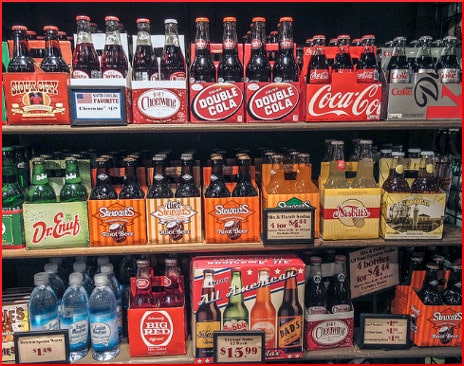
Childhood Obesity News mentioned how registered dietitians are financially rewarded by Coke and the American Beverage Association to hype products and ideas via social media. Typically, their job is to object to any thought of taxing soft drinks, or sugar in general. Apparently one of the arguments they use is the “stealth tax” theory.
Supposedly, anything other than property or income tax is a stealth tax, and that includes sales tax, value-added tax, tobacco and liquor tax, gas and air travel tax. (It seems like lottery tickets should also be included.)
Ideally, a stealth tax is built into the product so cleverly that the customer doesn’t realize it’s there. But retailers (in America, anyway) provide receipts that clearly specify the tax amount. Even if they didn’t, as long as the information is available to a casual inquirer, there is nothing sneaky about it.
Little pity can be spared for consumers so uninformed as to be unaware of, for instance, the taxation of liquor. If people don’t realize half the price of a pack of cigarettes is tax, they have no one but themselves to blame.
Of course, even when the point-of-sale tax amount is known, any product still has an enormous amount of taxation baked into it. The true stealth taxes are the ones that were paid by the manufacturer, before the item even hit the store’s shelf. When the purchase is made those outlays will be recouped from the customer.
What does that even mean?
Supposedly, the main feature of a stealth tax is that it makes the government some money without attracting attention, because protest will be minimized if the offense “isn’t properly detected.” This definition breaks down, however, when considering the possibility of a sugar tax in Great Britain, which has been hotly and very publicly debated for years. There is absolutely nothing underhanded about it.
Apparently, “stealth tax” is just one of those terms to which people are expected to automatically react with fear and loathing, which is why paid bloggers and tweeters are instructed to use it. It’s as if “stealth tax” has become the new code for “sin tax.”
Who else gets paid off? According to The Times, researchers have made millions of pounds and dollars off Coca-Cola. They had one job, which was to convince everybody that sugar doesn’t cause obesity. According to the article:
The newspaper investigation claims the drinks giant has financial links to “more than a dozen British scientists, including government health advisers and others to cast doubt on the commonly accepted link between sugary drinks and the obesity crisis.”
The drinks giant has published a list of research activities it pays for in the US and says it is in the process of doing so for Britain.
For details about why Childhood Obesity News is not a fan of Coke or any sugar-sweetened beverages please see “The CDC-Coke Scandal and Beyond” or choose from a number of previous Coke-related posts.
Your responses and feedback are welcome!
Source: “Coca-Cola is paying dietitians to tweet scare-stories about soda taxes,” BoingBoing.net, 10/08/16
Source: “What is a stealth tax?,” ROMEconomics.com, 12/21/13
Source: “Too Sweet to Handle: UK Health Minister Sugarcoating UK Obesity Crisis,” SputnikNews.com, 10/12/15
Photo credit: Larry Miller via Visualhunt/CC BY-SA

 FAQs and Media Requests:
FAQs and Media Requests: 











